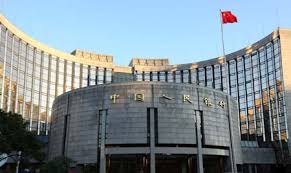The governor of the People’s Bank of China, Zhou Xiaochuan, said in an interview that digital currencies will inevitably replace cash, but they will be regulated if used as legal tender.
Zhou noted that the PBOC has been examining digital currencies for some time. He indicated that physical cash is “low-tech” and that rapid development of Internet-based global payment systems necessitates the creation of digital currency, which he believes will improve financial infrastructure and economic quality and efficiency.
The central bank governor confirmed the PBOC’s recently revealed plans to develop its own digital currency and made it clear that a balance will be struck between “protecting people’s privacy and cracking down on illegalities” in the implementation.
According to Zhou, the design of China’s national digital currency will be “fundamentally different” to bitcoin to avoid its security and anonymity issues. Blockchain may also not be utilized as the technology behind the currency but the currency will likely be based on “advanced cryptographic algorithms that will be continually upgraded”.
Zhou explained that the PBOC has reservations about the blockchain because of what they perceive to be large resource requirements and limited transactional volume. Zhou told Caixin:
“The PBOC has spent a lot of time and energy researching on the application of block chain technology. But so far block chains have consumed too many resources, including both computation and storage resources, and cannot handle the current transaction volume. We need to wait and see whether this problem can be solved in the future.”
The central banker pointed out that the PBOC did not have a timetable yet for a move to a digital currency. He elucidated that, as a very large country, China would take time to transition from physical to digital money, so a digital currency will co-exist with cash for years before it finally replaces cash. The cost for cash transactions will gradually increase in the later stages. For example, banks do not currently charge any fees for counting physical cash, but in the future they may charge their clients for the service. With the transaction costs of paper money rising, people will be motivated to opt more for digital money.








